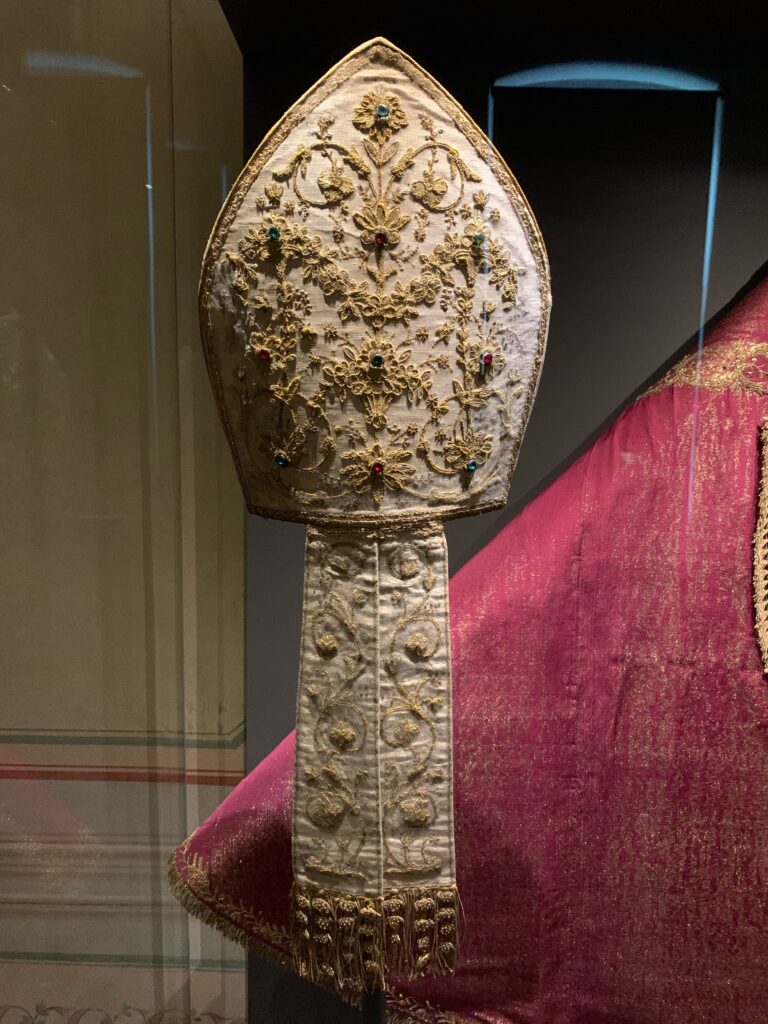
Safeguarding scandals, whether they involve bullying or abuse, have hit the Church of England over the past 15 years with sickening regularity. These have cost the institution staggeringly large sums of money as well as reputational damage. I am not privy to most of the financial details, but an event like the ‘retirement’ of the former Bishop of Winchester, a few years ago, was only managed and concluded after a great deal of money was made available to fund the whole process and the settlements that were reached. Bishops and ordinary clergy hold offices which are protected by strong legal rights. You cannot say to a clergyperson with a licence ‘you are fired’, even if there is a scale of offending that is blatant and obvious. The old consistory courts that used to preside in cases of clerical malfeasance have been superseded by new forms of church legislation, but the processes involved in removing a clergyman from office still involve the Church expending a great deal of labour and money.
As part of the financial education of the lay people in the Church, it is regularly being explained that the cost of one stipendiary priest is around £60,000. Readers of this blog will understand something of how this figure is made up. This is not anything like the salary level of an ordinary parish priest, which comes in at around half this figure. Most church-goers have taken this financial figure on board, and the majority realise that giving to the church has become a serious obligation. No longer do ancient endowments provide anything near a sustainable standard of living, as they did until fairly recently. When I was a curate in Croydon in the early 70s, I managed on a salary of around £1500 p.a. I was then unmarried, so it was possible to save quite a proportion of this income. In the local deanery I picked up information about the stipend of incumbents, and there was some variation, thanks to the historic incomes of the individual parishes. One Vicar in the centre of Croydon received the princely sum of £4k from the fact that the parish was well endowed. Most of the other parishes that I knew about provided far less than this but were topped up from central funds to a level of around £1800. On average, the endowments would have typically provided around two thirds of this sum.
I raise this topic of finance because I believe that money, or lack of it, represents a substantial threat to both the morale and survival of the Church of England today. The main fact about the finances of the CofE back in the 70s is that the institution was then to a considerable degree kept afloat on dead men’s money. Endowments meant that ordinary church people could think of the church as the material provider, allowing them to have paid incumbents, living in Vicarages which had been bought by the church in earlier decades. This mentality of the church having all the money to provide for ministry costs is now, of course, hopelessly out of date. Inflation has almost completely destroyed the value of the historic endowments attached to individual parishes. Also, the pattern of church life today has resulted in many, many new ways of churches spending money, especially at the level of the diocese and new national institutions. One expensive add-on for the church is taking financial responsibility for training new clergy. I was trained under a system which saw the local education authority pay for everything from my undergraduate course to my residential theological training. The authority even redirected my college fees over two terms to pay for my course in Switzerland at the Ecumenical Institute. In contrast. every clergyperson today, coming through the system, has had, in most cases, thousands of pounds spent on their training by the Church. If ever a clergyperson ceases to follow the path of ordained ministry, they become, in an accounting perspective, a lost asset. From the point of view of a management perspective, every member of the clergy is a valuable commodity. He/she has cost the institution a substantial amount of money to train and is difficult to replace. Every trained clergyperson is a precious asset, and everything must be done to protect and defend them. They are valuable and allow the church to exist as a functioning organisation.
One of the perennial complaints of those who try to understand the problems around safeguarding is the claim that the victims and survivors of clerical and church abuse are treated less well than the perpetrators. This is one of the claims of Stephen Kuhrt in his recent book, Safeguarding the Institution. Institutional bullying by senior members of the Church is illustrated from his own story. There are many others who have encountered the hard edge of the Church’s self-preservation mode as it acts in harsh ways, trying to preserve its reputation as well as its assets. These assets are found, as we have indicated, not in merely in buildings and endowments, though these are important, but in its trained leaders. The human assets are precious, not only because of the expense of training them to fill the incumbency posts up and down England, but because of the acute difficulty in replacing them when they are no longer available to serve. This shortage is a serious threat to the church’s long-term survival but is not discussed very much. The current shortfall in clergy available to fill posts is not information that is published. My estimate, based partly on a scrutiny of the advertisement pages of the Church Times, is that there are some serious shortages in clergy manpower in some parts of England. I also suspect that some Diocesan bishops have quietly accepted that some of the parishes in their sees will never again be able to maintain anything resembling the structures of the traditional parish system.
I have some sympathy for the C/E bishops who are burdened by the responsibility of overseeing a system which, for financial and manpower reasons, may never again be able to function as intended. In a situation where able clergy are thin on the ground, needing to be encouraged and supported like some rare, almost extinct creatures, it is not surprising that bishops and those in authority will have a distinctive approach to safeguarding. This perspective might seem to be, sometimes, over-generous and forgiving to clerical perpetrators. Such an approach might also appear less than sympathetic to the survivors who challenge the system by demanding prompt action against abuse. When a bishop has finally to exercise his authority by expelling an individual from ministry, he/she must negotiate numerous time-consuming financial and legal obstacles along the way. At the end of this process, she/he will then need to find a replacement. Taking over a parish where there has been a serious safeguarding issue is seldom a straightforward challenge for a newcomer. The outside observer does not see all the hidden processes that have been gone through. The bishop and archdeacon will view the problem from a broader perspective and try to think of the long-term interests of the whole area affected by the abuse. The outside observer is properly focussed on the victims/survivors. The church officials, in contrast, will possibly be taking a view that provides for the possibility that the perpetrator may eventually resume active ministry in due course. The flawed failing clergyman remains a potential asset within the system. If there are possible means to allow him/her to continue at a future date when the offence may have been forgotten by those involved, the bishop may well seek to make it possible.
So, to summarise, we have two understandable ways of reacting in a Church that is plagued by a series of abuse scandals. It is clear that there is first the moral/legal approach. This is the one that most people, especially victims and survivors, feel should routinely be applied. This demands that, in dealing with safeguarding cases, the path of applying strict justice should be followed. The guilty must be held to account, and the wounded bound up with healing balm. For most survivors and those who support them there is no other possible way forward. Yet as we have seen there is another (pragmatic?) perspective to be considered. This is the view of church authorities that is aware of the dire current financial and manpower shortages in the church which makes them unwilling to let them go unless absolutely necessary. They have looked at the future and possibly seen that the whole parochial system is under threat and even unsustainable over a fifty-year period. The financial assets of the C/E are probably robust enough to face this crisis for a reasonably long period, but other assets – money poured into training individuals to serve as clergy – also need protection. Every time a clergy person is lost to the system through premature retirement or misconduct, that is like a dagger wound to the whole church. It also represents a loss to the whole Church in financial terms. One other possible reaction to this crisis of trained manpower is to allow the standards of training to slip so that the whole process becomes cheaper and less thorough. Lowering standards beyond a certain point would, I fear, bring is own set of problems, some touching on the area of safeguarding.
The current decade in the Church of England may well be remembered as the safeguarding period. The question that is being asked is whether these safeguarding issues will ultimately overwhelm the Church financially and morally. Can we find a way of affirming compassion and safety alongside a keen protection of justice and honesty in a way that meets the demand for fair-play among church people and public alike?







